#edgerton
Explore tagged Tumblr posts
Text


Edgerton, Ohio
here's a westbound manifest on Norfolk Southern's line to Chicago (through northern Ohio and Indiana—former New York Central). I was attracted to the vintage grain elevator here. Was hoping to find out when it was built and such but a quick search garnered no results.
One image by Richard Koenig; taken July 30th 2024.
45 notes
·
View notes
Text
Erin Kara named Edgerton Award winner
New Post has been published on https://thedigitalinsider.com/erin-kara-named-edgerton-award-winner/
Erin Kara named Edgerton Award winner
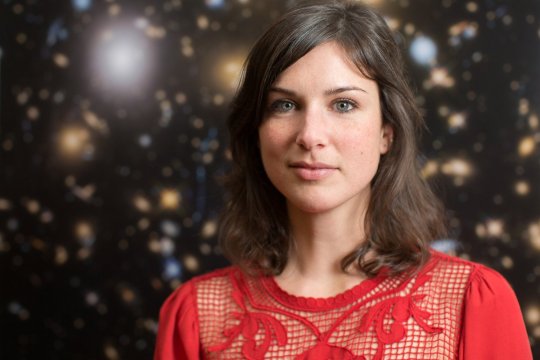

Class of 1958 Career Development Assistant Professor Erin Kara of the Department of Physics has been named as the recipient of the 2023-24 Harold E. Edgerton Faculty Achievement Award. Established in 1982, the award is a tribute to the late Institute Professor Emeritus Harold E. Edgerton for his support for younger faculty members. This award recognizes exceptional distinction in teaching, research, and service.
Professor Kara is an observational astrophysicist who is a faculty member in the Department of Physics and a member of the MIT Kavli Institute for Astrophysics and Space Research (MKI). She uses high-energy transients and time-variable phenomena to understand the physics behind how black holes grow and how they affect their environments.
Kara has advanced a new technique called X-ray reverberation mapping, which allows astronomers to map the gas falling onto black holes and measure the effects of strongly curved spacetime close to the event horizon. She also works on a variety of transient phenomena, such as tidal disruption events and galactic black hole outbursts.
She is a NASA Participating Scientist for the XRISM Observatory, a joint JAXA/NASA X-ray spectroscopy mission that just launched this past September, and is a NASA Participating Scientist for the ULTRASAT Mission, an ultraviolet all-sky time domain mission, set to launch in 2027. She is also working to develop and launch the next generation of NASA missions, as deputy principal investigator of the AXIS Probe Mission.
“I am delighted for Erin,” says Claude Canizares, the Bruno Rossi Professor of Physics. “She is an exemplary Edgerton awardee. As one of the leading observational astrophysicists of her generation, she has made major advances in our understanding of black holes and their environments. She also plays a leadership role in the design of new space missions, is a passionate and effective teacher, and a thoughtful mentor of graduate students and postdocs.”
Adds Kavli Director Rob Simcoe, “Erin is one of a very rare breed of experimental astrophysicists who have the interest and stamina not only to use observatories built by colleagues before her, but also to dive into a leadership role planning and executing new spaceflight missions that will shape the future of her field.”
The committee also recognized Kara’s work to create “a stimulating and productive multigenerational research group. Her mentorship is thoughtful and intentional, guiding and supporting each student or postdoc while giving them the freedom to grow and become self-reliant.”
During the nomination process, students praised Kara’s teaching skills, enthusiasm, organization, friendly demeanor, and knowledge of the material.
“Erin is the best faculty mentor I have ever had,” says one of her students. “She is supportive, engaged, and able to provide detailed input on projects when needed, but also gives the right amount of freedom to her students/postdocs to aid in their development. Working with Erin has been one of the best parts of my time at MIT.”
Kara received a BA in physics from Barnard College, and an MPhil in physics and a PhD in astronomy from the Institute of Astronomy at Cambridge University. She subsequently served as Hubble Postdoctoral Fellow and then Neil Gehrels Prize Postdoctoral Fellow at the University of Maryland and NASA’s Goddard Space Flight Center. She joined the MIT faculty in 2019.
Her recognitions include the American Astronomical Society‘s Newton Lacy Pierce Prize, for “outstanding achievement, over the past five years, in observational astronomical research,” and the Rossi Prize from the High-Energy Astrophysics Division of the AAS (shared).
The award committee lauded Kara’s service in the field and at MIT, including her participation with the Physics Graduate Admissions Committee, the Pappalardo Postdoctoral Fellowship Committee, and the MKI Anti-Racism Task Force. Professor Kara also participates in dinners and meet-and-greets invited by student groups, such as Undergraduate Women in Physics, Graduate Women in Physics, and the Society of Physics Students.
Her participation in public outreach programs includes her talks “Black Hole Echoes and the Music of the Cosmos” at both the Concord Conservatory of Music and an event with MIT School of Science alumni, and “What’s for dinner? How black holes eat nearby stars” for the MIT Summer Research Program.
“There is nothing more gratifying than being recognized by your peers, and I am so appreciative and touched that my colleagues in physics even thought to nominate me for this award,” says Kara. “I also want to express my gratitude to my awesome research group. They are what makes this job so fun and so rewarding, and I know I wouldn’t be in this position without their hard work, great attitudes, and unwavering curiosity.”
#2023#Admissions#Astronomy#Astrophysics#Awards#honors and fellowships#black hole#Black holes#career#career development#claude#college#cosmos#curiosity#Design#development#disruption#Edgerton#effects#energy#Events#experimental#express#Faculty#flight#Future#gas#Giving#Horizon#how
5 notes
·
View notes
Text
[…]ciò che costituisce la natura della Fotografia, è la posa. Poca importanza ha la durata fisica di tale posa; anche se solo per un milionesimo di secondo (la goccia di latte di H. D. Edgerton), vi è comunque stata posa, poiché la posa non è qui un atteggiamento della cosa fotografata (il bersaglio) e neppure una tecnica dell’Operator, bensì il termine di una «intenzione» di lettura: guardando una foto, io includo fatalmente nel mio sguardo il pensiero di quell’istante, per quanto breve esso sia stato, in cui una cosa reale si è trovata immobile davanti all’occhio. Io trasferisco l’immobilità della foto presente sulla registrazione passata, ed è appunto questa sospensione che costituisce la posa. Tutto questo spiega che il noema della Fotografia si altera quando quella Fotografia si anima e diventa cinema: nella Foto, qualcosa si è posto dinanzi al piccolo foro e vi è rimasto per sempre (questa è almeno la mia impressione); nel cinema, invece, qualcosa è passato davanti a quello stesso piccolo foro: la posa viene travolta e negata dal continuo susseguirsi delle immagini: è un’altra fenomenologia e di conseguenza è un’altra Arte che ha inizio, benché derivata dalla prima.
Roland Barthes
6 notes
·
View notes
Text
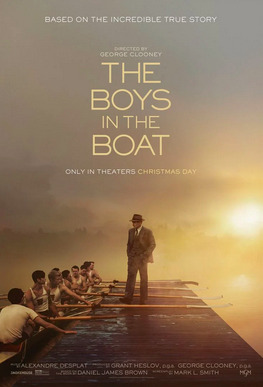
"Boys in the Boat" biopic de George Clooney (2023) - basé sur le livre éponyme de Daniel James Brown (2013) racontant l'histoire de l'équipe d'aviron de l'Université de Washington qui a représenté les Etats-Unis aux "Jeux Olympiques" de Berlin (1936) - Callum Turner, Joel Edgerton, Peter Guinness, Luke Slattery, Jack Mulhern et Hadley Robinson, février 2024
0 notes
Text
Top 10…or 12 Haunted Sites visited in 2023
The most amazing, unique, creepy (and simply coolest) haunted places we visited around the world in 2023.

View On WordPress
#Biester Palace#cairn#castle hackett#cemetery#Culver City#Culver Studios#Edgerton#erie street cemetery#Fae and fairies#fairies#fairy legends#Galena#Galena Cellars#galway#ghost#Ghost Adventures#haunted#hellfire club#hollywood#hollywood toys and costume#Initiation Well#Ireland#J.J. Bowles#joc-o-sot#Kilkea Castle#Knights Templar#knockma hill#Lake House Inn#Limerick#Los Angeles
1 note
·
View note
Text

You know I had to do it to em
#rel'sart#sir gawain#sir gawain and the green knight#lord bertilak#bertilak de hautdesert#lady bertilak#myart#gawain#gawain x bertilak#gawain x the lady#gawain x lord bertilak x lady bertilak#the green knight 2021#the green knight#a24#dev patel#alicia vikander#joel edgerton#arthuriana#arthurian mythology#medieval#the polycule ever#sorry this meme fits them so good I could not#green knight
598 notes
·
View notes
Text

#polls#movies#the green knight#the green knight 2021#the green knight movie#2020s movies#david lowery#dev patel#alicia vikander#joel edgerton#sarita choudhury#sean harris#requested#have you seen this movie poll
194 notes
·
View notes
Text


JOEL EDGERTON as NATE NASH Red Sparrow (2018) dir. Francis Lawrence
#joel edgerton#red sparrow#nate nash#filmedit#men#menedit#cinemapix#filmgifs#dilfsource#usersavana#usersam#usermichi#*#pedro
1K notes
·
View notes
Text


In which Al Ulbrickson is a whole mood
THE BOYS IN THE BOAT (2023)
#tbitb#tbitbedit#theboysintheboatedit#the boys in the boat#filmedit#perioddramaedit#weloveperioddrama#perioddramasource#jack mulhern#joel edgerton#don hume#al ulbrickson#mine#mine: gifs#i got the year right this time
409 notes
·
View notes
Text

Moving skipping rope, 1952
Harold Edgerton
470 notes
·
View notes
Text
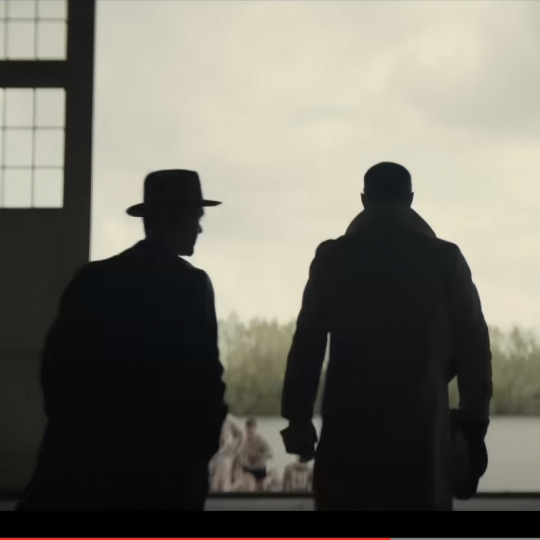








"It's called swing. When all eight are rowing in such perfect unison, no single action is out of sync with the rest of the boat."
The Boys in the Boat (2023)
#the boys in the boat#bitb#callum turner#luke slattery#joel edgerton#did I make the first bitb moodboard on tumblr?#moodboard#joe rantz#bobby moch#don hume
457 notes
·
View notes
Text
Playing a new tune
New Post has been published on https://thedigitalinsider.com/playing-a-new-tune/
Playing a new tune


For generations, Andrew Sutherland’s family had the same calling: bagpipes. Growing up in Halifax, Nova Scotia, in a family with Scottish roots, Sutherland’s father, grandfather, and great-grandfather all played the bagpipes competitively, criss-crossing North America. Sutherland’s aunts and uncles were pipers too.
But Sutherland did not take to the instrument. He liked math, went to college, entered a PhD program, and emerged as a professor at the MIT Sloan School of Management. Sutherland is an enterprising scholar whose work delves into issues around the financing and auditing of private firms, the effects of financial technology, and even detecting business fraud.
“I was actually the first male in my family to not play the bagpipes, and the first to go to university,” Sutherland explains. “The joke is that I’m the shame of the family, since I never picked up the pipes and continued the tradition.”
The family bagpiping loss is MIT’s gain. While Sutherland’s area of specialty is nominally accounting, his work has illuminated business practices more broadly.
“A lot of what we know about the financial system and how companies perform, and about financial statements, comes from big public companies,” Sutherland says. “But we have a lot of entrepreneurs come through Sloan looking to found startups, and in the U.S., private firms generate more than half of employment and investment. Until recently, we haven’t known a lot about how they get capital, how they make decisions.”
For his research and teaching, Sutherland was awarded tenure at MIT last year.
Piper at the gates of college
Sutherland is proud of his family history; his grandfather and great-grandfather have taught generations of bagpipe players in Nova Scotia, with many of their students becoming successful pipers around the world. But Sutherland took to math and business studies, receiving his undergraduate degree in commerce, with honors in accounting, from York University in Toronto. Then he received an MBA from Carnegie Mellon University, with concentrations in finance and quantitative analysis.
Sutherland still wanted to research financial markets, though. How did banks evaluate the private businesses they were lending to? How much were those firms disclosing to investors? How much just comes down to trust? He entered the PhD program at the University of Chicago’s Booth School of Business and found scholars encouraging him to pursue those questions.
That included Sutherland’s advisor, Christian Leuz; the long-time Chicago professor Douglas Diamond, now a Nobel Prize winner, whom Sutherland calls “one of the most generous researchers I’ve met” in academia; and a then-assistant professor, Michael Minnis, who shared Sutherland’s interest in studying private firms and entrepreneurs.
Sutherland earned his PhD from Chicago in 2015, with a dissertation about the changing nature of banker-to-business relationships, published in 2018. That research studied the effects of transparency-improving technologies on how small businesses obtained credit.
“Twenty years ago, banking was very relationship-based,” Sutherland says. “You might play golf with your loan officer once a year and they knew your business and maybe your employees, and they would sponsor the local softball team. Whereas now banking has been really influenced by technology. A lot of companies provide credit through online applications, and the days where you had to supply audited financial statements has gone away.” As a result of the expansion in technology-based lending, credit markets have shifted from a relationship basis to a transactional focus.
Sutherland, who is currently an associate professor at MIT, joined the faculty in 2015 and has remained at the Institute ever since. A fan of modern art, his office at MIT Sloan includes an Andy Warhol print, which is part of MIT’s art-lending program, as well as reproductions of some of Harold “Doc” Edgerton’s famous high-speed photographs.
Sutherland has since written five papers with Minnis (now a deputy dean at Chicago Booth), and other co-authors. Many of their findings highlight the variation in lending and contracting practices in the small business sector. In a 2017 study, they found that banks collected fewer verified financial statements from construction companies during the pre-2008 housing bubble than afterward; before 2008, lending had become lax, similar to what happened in the mortgage markets, and this contributed to the crisis. In another study from that year, they showed how banks with extensive industry and geographic expertise rely more on soft than hard information in lending.
“We’re trying to understand the ‘Wild West’ in accounting and finance more broadly,” Sutherland says. “For firms like entrepreneurs and privately held companies, largely unfettered by regulation, what choices do they make, and why? And how can we use economic theory to understand these choices?”
Business, trust, and fraud
Indeed, Sutherland has often homed in on issues around trust, rules, and financial misconduct, something students care about greatly.
“Students are always interested in talking about fraud,” Sutherland says. “Our financial system is based on trust. So many of us invest on an entirely anonymous basis — we don’t personally know our fund manager or closely watch what they do with our money.” And while regulations and a functioning justice system protect against problems, Sutherland notes, finance works partly because “people have some trust in the financial system. But that’s a fragile thing. Once people are swindled, they just keep their money in the bank or under the mattress. Often we’ll have students from countries with weak institutions or corruption, and they’ll say, ‘You would never do the things you can do in the U.S., in terms of investing your money.’ Without trust, it becomes harder for entrepreneurs to raise capital and undermines the whole vibrant economic system we have.”
Some measures can make a big difference. In a 2020 paper published in the Journal of Financial Economics, Sutherland and two co-authors found that a 2010 change to the investment adviser qualification exam, which reduced its focus on ethics, had significant effects: People who passed the exam when it featured more rules and ethics material are one-fourth less likely to commit misconduct. They are also more likely to depart employers during or even before scandals.
“It does seem to matter,” Sutherland says. “The person who has had less ethics training is more likely to get in trouble with the industry. You can predict future fraud in a firm by who is quitting. Those with more ethics training are more likely to leave before a scandal breaks.”
In the classroom
Sutherland also believes his interests are well-suited to the MIT Sloan School of Management, since many students are looking to found startups.
“One thing that really stands out about Sloan is that we attract a lot of entrepreneurs,” Sutherland says. “They’re curious about all this stuff: How do I get financing? Should I go to a bank? Should I raise equity? How do I compare myself to competitors? It’s striking to me that if that person wanted to work for a big public firm, I could hand them a textbook that answers many of these questions. But when it comes to private firms, a lot of that is unknown. And it motivates me to find answers.”
And while Sutherland is a prolific researcher, he views classroom time as being just as important.
“What I hope with every project I work on is that I could take the findings to the classroom, and the students would find it relevant and interesting,” Sutherland says.
As much as Sutherland made a big departure from the family business, he still gets to teach, and in a sense perform for an audience. Ask Sutherland about his students, and he sounds an emphatically upbeat note.
“One of the best things about teaching at MIT,” Sutherland says, “is that the students are smart enough that you can explain how you did the study, and someone will put up a hand and say: ‘What about this, or that?’ You can bring research findings to the classroom and they absorb them and challenge you on them. It’s the best place in the world to teach, because the students are just so curious and so smart.”
#accounting#accounting and finance#America#Analysis#applications#Art#bank#banking#banks#Behavioral economics#Business#Business and management#Business Studies#Carnegie Mellon University#challenge#change#college#Commerce#Companies#construction#diamond#economic#Economics#Edgerton#effects#employees#employment#equity#Ethics#Faculty
0 notes
Text





#the boys in the boat#tbitb#tbitbedit#joe rantz#callum turner#jack mulhern#don hume#luke slattery#bobby moch#al ulbrickson#joel edgerton#tomas elms#sam strike#chuck day#roger morris
99 notes
·
View notes
Text






GAWAIN and GALAHAD King Arthur | dir. Antoine Fuqua
KA20TH CELEBRATION | Day 2 - Love
AN: For today's @ka20th prompt I decided to focus on an underrated pairing. I know that a lot of people ship Galahad with Tristan because of Hannibal but there's something about these two that make me ship them instead. Maybe it's the little smiles that they share, or Gawain's glances, or the fact that they're always side by side on screen. I can't put my finger on it!
#king arthur#king arthur 2004#gawain#galahad#gawain x galahad#arthurian mythology#arthurian knights#arthurian legend#hugh dancy#joel edgerton#period drama#perioddramaedit#perioddramasource#perioddramagif#hdancyedit#jedgertonedit#cinemapix#cinematv#filmedit#filmgifs#moviegifs#ka20th#fyeahmovies
164 notes
·
View notes
Text
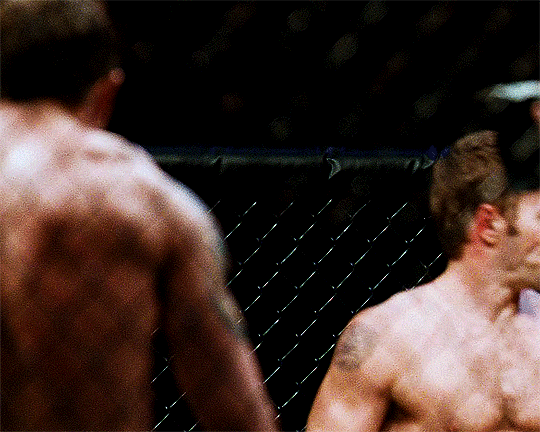
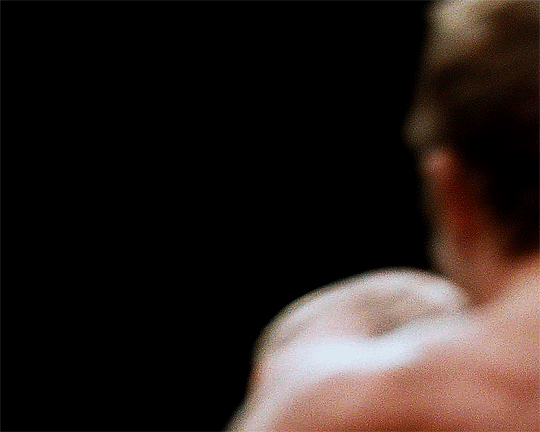

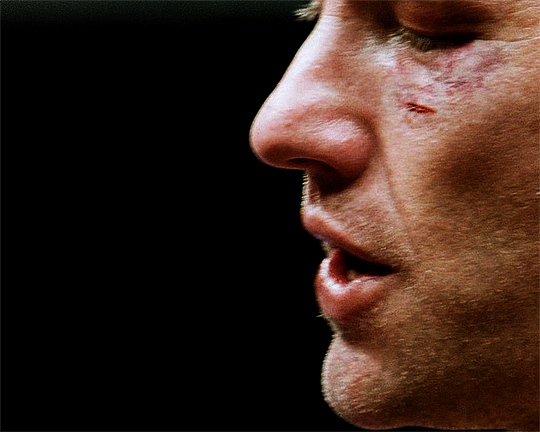
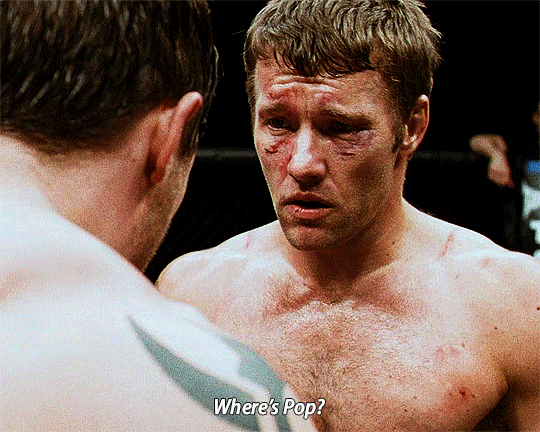
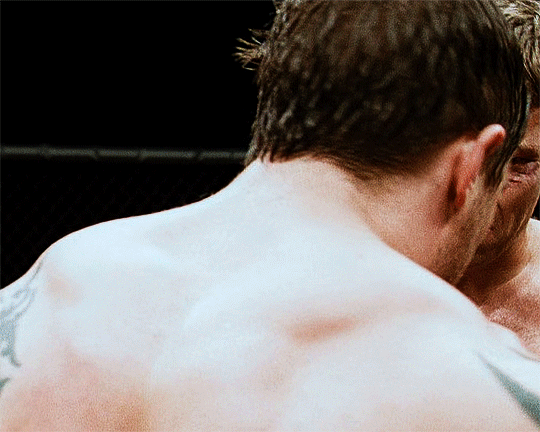
Warrior (2011)
#warrior#tom hardy#joel edgerton#filmedit#moviegifs#fyeahmovies#userfilm#cinemapix#cinematv#filmtvtoday#userstream#filmtvcentral#tvandfilm#bigscreensource#cinematicsource
334 notes
·
View notes
Text




There is something, and I think I can take it.
The Green Knight (2021) dir. David Lowery
#the green knight#thegreenknightedit#dev patel#joel edgerton#devpateledit#movies#moviegifs#filmgifs#filmedit#movieedit#gawain#**#*gifs#if youre seeing this on mobile. no youre not#im trying to learn how to color again but i dont think this one is too shabby
177 notes
·
View notes